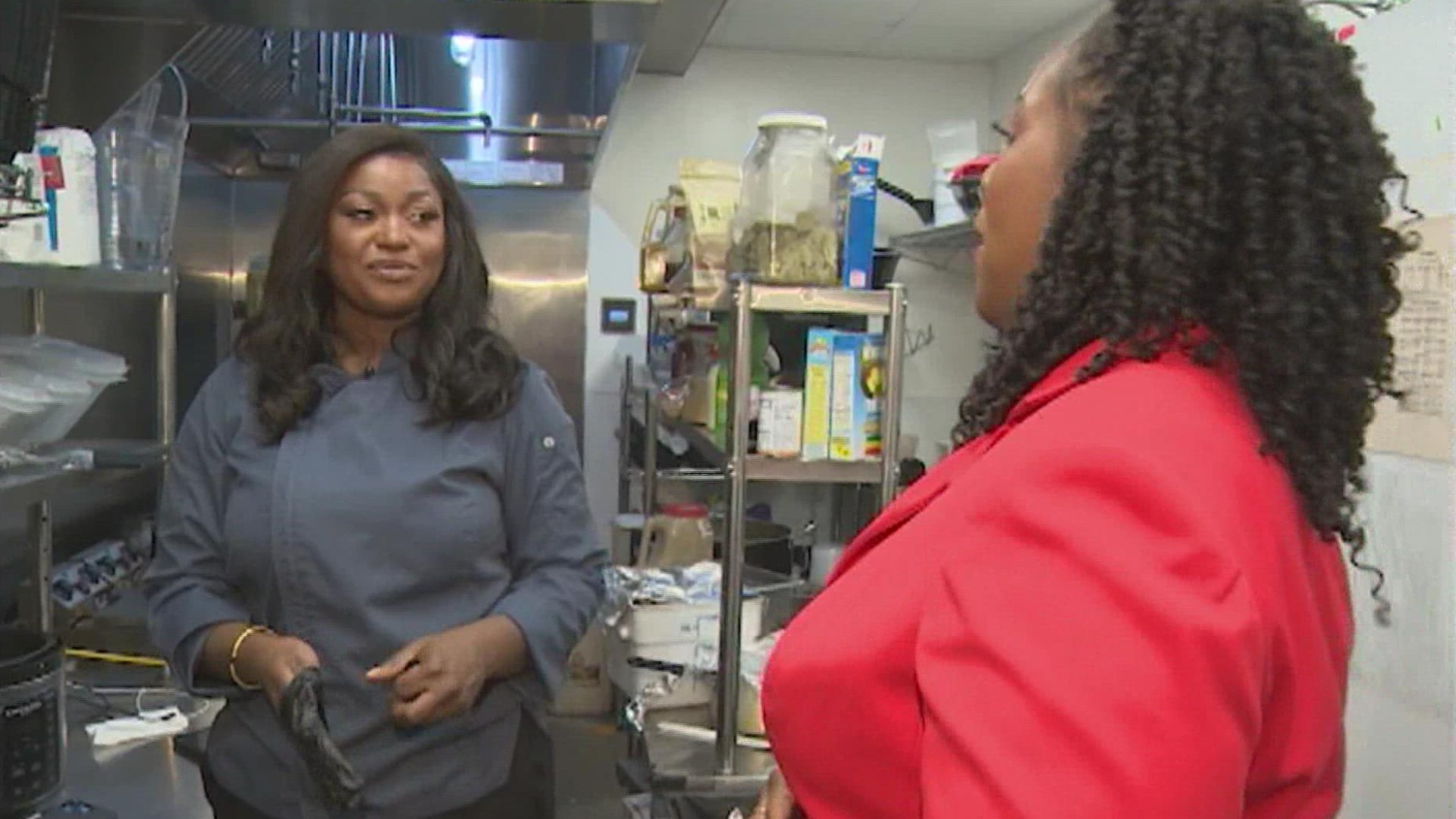HOUSTON — When we talk about Black History Month, we can't forget what connects so many Black people, especially those living right here in Houston.
The different faces of Blackness in Houston share something in common. You can hear people talking about it at Addie's Kitchen.
"We are all melanated and our roots all run deep," said Addie's Kitchen owner Head Chef Adeola Olayiwola.
Deep, with a long Black history dating back to the Motherland, not just in the kitchen.
"African history is Black history and Black history is also African history," Clara Igwala-Anumege said.
Houston is home to some of the country's largest African groups. We have one of the largest populations of Nigerians living in the United States, with about 150,000.
Igwala-Anumege is the founder of the official Nigerian Day in Houston. She said she has met so many African Americans who've learned they share her ancestry.
"Thanks to a lot of these websites where you can test your blood and stuff like that, we are finding out where a lot of the people are coming from. Majority of the slaves did come from West Africa," Igwala-Anumege said.
Biotechnology company "23andMe" has published a DNA study of 30,000 people of African ancestry in the Americas and the Caribbean and found a significant amount of Nigerian ancestry.
"If not for all the things African Americans have done in this country, Africans would not be able to be here and comfortable," Igwala-Anumege said.
Comfortable and bold enough to create the first official Nigerian Day in Houston eight years ago. The day raises scholarship money to help both young and older students.
"Nigerians love to party, of course. We needed something where you could actually learn about the culture and teach the people of Houston about Nigerian culture in its beauty," she said.
Traditional Tribal fashion and food are showcased at the festival.
"Doing this event ... I started a food blog called "Taste of Pan Africa" because I saw the different Pan Africa countries were all connected ... the seasonings, the blends," Igwala-Anumege said. "I started seeing certain foods looking like each other. I said, 'Wait a minute, we are really connected, you know?'"
Food connects people at Addie's Kitchen.
"This is so cool, because you say the food can come straight to the people. They don't even have to come in," said KHOU 11's Ugochi Iloka. "This is the first digital AFRICAN restaurant in the third ward. "
"On Blodgett Street, you can grab fufu, okra soup, egusi everything that you need right here," Olayiwola. "Having an African restaurant here solidifies you know the third ward is historically Black, historically African."
"Imagine you figure out you are 45% Nigerian. You don't feel like going all the way to the Galleria area or the southwest. Right in your neighborhood, walking distance you can taste a piece of your ancestry."
With good-tasting food, good music usually follows, which is very diverse within Black communities.
"I won 9 out of 9 rounds. To me being Puerto Rican, they don't expect me to dominate in soca, reggae, hip hop, afro beats," said Houston-based Puerto Rican "DJ Silent Killa," Ricardo Perez.
The Houston-based DJ has won several spin-off competitions internationally, however, he's not only known for turning tables, but also turning around the lives of kids.
"I used to oversee five schools in Alief at the time," he said. "I noticed there were kids that were embarrassed to say they were from the Caribbean or Africa."
In Alief, Texas, Perez started the "Around the World" program.
"I used to visit a shop off West Belfort called Tata African exports," he said. "I'll buy little bracelets say Nigeria, Trinidad give them to these kids to motivate them about their country."
It's impossible to list them all, but these three people with three different backgrounds show the many faces of Blackness and African ancestry across our city.

